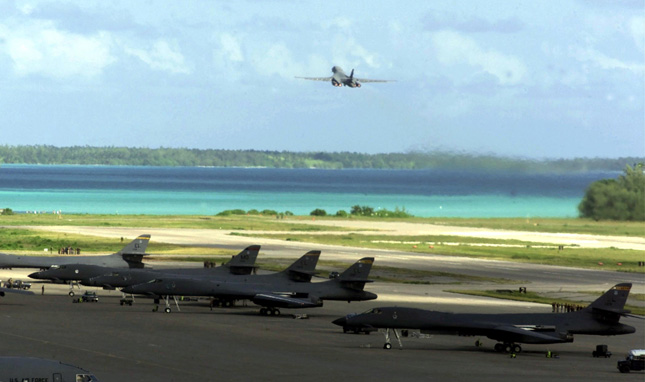-
People not Polar Bears: National Security and the Changing Climate
July 19, 2017 By Arundhati Ponnapa
“If we really cared about the polar bears, we would have done something,” quipped retired U.S. Navy Rear Admiral David Titley, who gave an Environmental Research and Education Distinguished Lecture at the National Science Foundation on June 27, 2017. Titley framed climate change in terms of U.S. national security interests, focusing on infrastructure, the changing Arctic, and how environmental factors can exacerbate conflict.
Changes to the operating environment are likely to affect military infrastructure, including the naval base in Norfolk, Virginia, and training areas at California bases. Military operations in strategic regions, such as the Arctic, will also be significantly affected by climate change: as ice melts and maritime conditions change, expanding territory, trade and transport, “imagine you’re trying to patrol the entire U.S.,” said Titley.
Titley noted that 3.7 million people in the United States live within one meter of high tide, putting them at risk from flooding, sea level rise, and extreme weather events. The same challenges plague expensive military bases belonging to the United States and its allies, such as the naval base on the Diego Garcia atoll in the Indian Ocean: “What’s plan B if we lose this island?” he asked.
“Climate is one link in a chain of events,” said Titley, pointing towards the Syrian Civil War and the Arab Spring as cases where climate change issues such as drought “make bad situations worse.” New security challenges could arise as the climate changes; for example, the shifting Arctic landscape and reduction in ice cover could have potential economic and military consequences for Arctic states such as Russia.
Titley called for more interagency collaboration, authoritative data, and climate services to “fill the knowledge gap” and mitigate climate change-related risks. “We try to look for surprises, we try to look for discontinuities,” he said, but since security agencies tend to focus on immediate and short-term threats, “If you can’t show how your threat is in the ‘now’, it’s hard.”
Read More:
- On population and climate change as threat multipliers
- Energy and environment as complex strategic risks for defense
- How the S. military is planning for climate change
Sources: Rolling Stone, U.S. National Oceanic and Atmospheric Administration, U.S. National Science Foundation
Photo Credit: B-1 Bombers on Diego Garcia, October 2001, courtesy of the U.S. Department of Defense
Topics: adaptation, climate change, conflict, environment, flooding, military, On the Beat, security, U.S.
 A Publication of the Stimson Center.
A Publication of the Stimson Center.



